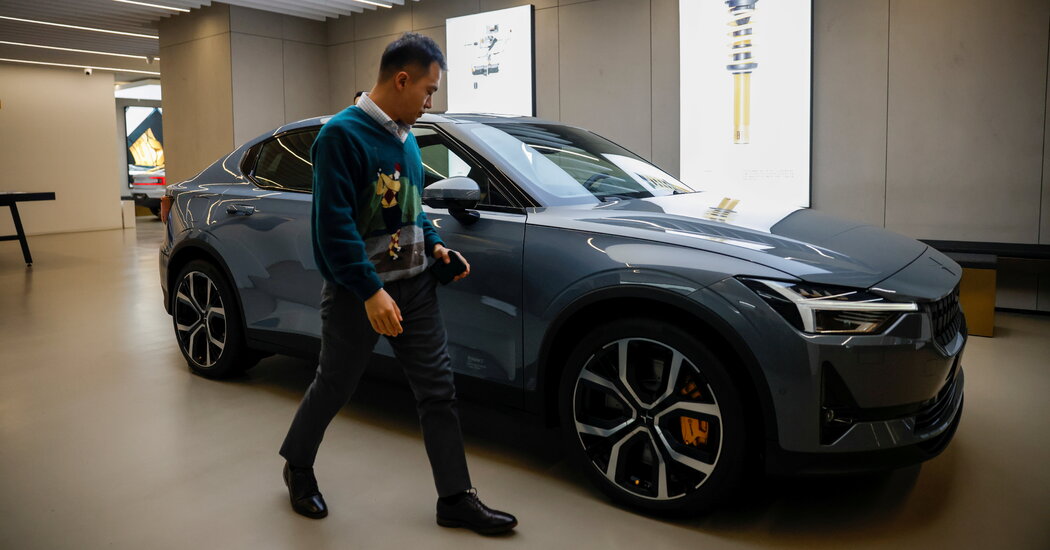Automakers in the United States and their supporters welcomed President Biden’s tariffs, saying they would protect domestic manufacturing and jobs from cheap Chinese vehicles.
The Biden administration’s new tariffs on Chinese electric vehicles won’t have a huge immediate impact on American consumers or the car market because very few such cars are sold in the United States.
But the decision reflects deep concern within the American automotive industry, which has grown increasingly worried about China’s ability to churn out cheap electric vehicles. American automakers welcomed the decision by the Biden administration on Tuesday to impose a 100 percent tariff on electric vehicles from China, saying those vehicles would undercut billions of dollars of investment in electric vehicle and battery factories in the United States.
“Today’s announcement is a necessary response to combat the Chinese government’s unfair trade practices that endanger the future of our auto industry,” Senator Gary Peters, a Michigan Democrat, said in a statement. “It will help level the playing field, keep our auto industry competitive and support good-paying, union jobs here at home.”
On Tuesday, President Biden announced a series of new and increased tariffs on certain Chinese-made goods, including a 25 percent duty on steel and aluminum and 50 percent levies on semiconductors and solar panels. The tariff on electric vehicles made in China was quadrupled from 25 percent. Chinese lithium-ion batteries for electric cars will now face a 25 percent tariff, up from 7.5 percent.
The United States imports only a few makes — electric or gasoline — from China. One is the Polestar 2, an electric vehicle made in China by a Swedish automaker in which the Chinese company Zhejiang Geely has a controlling stake. In a statement, Polestar said it was evaluating the impact of Mr. Biden’s announcement.
“We believe that free trade is essential to speed up the transition to more sustainable mobility through increased E.V. adoption,” the company said.
